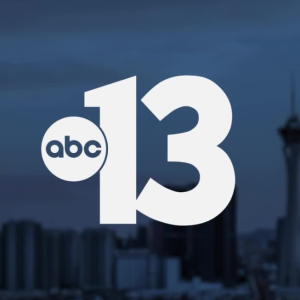LAS VEGAS (KTNV) — How much would you be willing to pay to take a high-speed train between Las Vegas and Southern California to avoid sitting in traffic?
Brightline founder and chairman Wes Edens told the Los Angeles Times round-trip tickets to take their high-speed rail between the two locations could cost over $400. Edens said the company is experimenting with pricing but that right now, prices are similar to airline tickets, meaning the cost changes depending on when you book.
Those prices could eventually come down. For example, when looking at Brightline ticket prices for this weekend, using their rail line between Orlando and Miami, round-trip tickets ranged between $49 and $149.
Federal officials have authorized $3 billion in taxpayer money to help fund the $12 billion project. The company will also have access to $3.5 billion in tax-exempt bonds. Brightline West also previously received $25 million from a separate federal grant to build stations in California. The rest of the funding is expected to be covered by private capital and private activity bonds.

In addition to costs, the project faces other challenges like location. The Las Vegas station would be located near Silverado Ranch Boulevard and Blue Diamond road while the Rancho Cucamonga station would be located about 40 miles away from downtown Los Angeles. Both stations would still require riders to take additional modes of transportation, like taxis or ride-booking services, to reach their final destinations across both cities.
According to Brightline, the average road trip between Las Vegas and Southern California is about four to five hours and the new high-speed rail line will take about two hours.
Documents filed by the company previously revealed Brightline is planning on operating 50 trains per day, 25 in each direction, between Las Vegas and Rancho Cucamonga, and they will depart at 45-minute intervals between 5:30 a.m. and 1 a.m.

Another big question: Is there actually demand for rail travel?
According to public bond filings, Brightline's Florida operations posted an operating loss of $190 million during the first nine months of last year.
Meantime, Brightline West crews are continuing field investigation work in Southern California and Nevada. The updated list of project areas are listed below. Brightline officials said motorists should be cautious when traveling through the following work zones.
Nevada
- I-15 median north of Jean, milepost 13-24.5
Crews are doing pothole and survey work will run through Thursday, March 14. Crews are working from 6:30 a.m. to 4 p.m. - I-15 median north of Primm, milepost 1-13
Geotechnical boring and survey work will run through Thursday, March 14. Crews are working from 6:30 a.m. to 4 p.m. - I-15 southbound lane #1 between milepost 11.5-21
Night work will focus on geophysical testing from Monday, March 17 through Friday, March 22 from 9 p.m. to 5:30 a.m.
California
- I-15 from Yates Well Road to Outlet Center Drive
Daytime boring is scheduled from Monday, March 11 to Friday, March 15 from 6:30 a.m. to 4 p.m.
Daytime boring in the shoulder of northbound Old Hwy 58 on-ramp to northbound I-15 is set for Monday, March 11 through Thursday, March 14 from 6:30 a.m. to 4 p.m. - I-15 from D Street to Oak Hill Road
Daytime boring in the center median and exterior shoulders is set from Monday, March 11 to Friday, March 15 from 6:30 a.m. to 4 p.m.
Night closures are planned on northbound I-15 exterior shoulders from the Roy Rodgers Drive on-ramp to Mojave Drive off-ramp from Tuesday, March 12 to Thursday, March 14 from 9 p.m. to 5 a.m. - I-15 from Cajon Road to Foothill Boulevard
Daytime boring in I-15 center median from Sierra Avenue to the I-210 interchange, and on Cherry Avenue near the I-15 from Monday, March 11 to Friday, March 15 from 6:30 a.m. to 4 p.m.
Night closures are planned on the I-15 center median in Devore from Thursday, March 14 to Friday, March 15 from 9 p.m. to 5 a.m.
Day closure planned on Foothill Boulevard, west of the I-15 interchange in the westbound $1 lane on Friday, March 15 from 6:30 a.m. to 4 p.m.
The rail line is expected to break ground this year and construction is projected to last about four years and open in time for the Olympics, which are scheduled to held in Los Angeles in 2028. That's the same year that Las Vegas will host the NCAA men's basketball Final Four.




